Learning from a model school-based WASH facility in Bangladesh
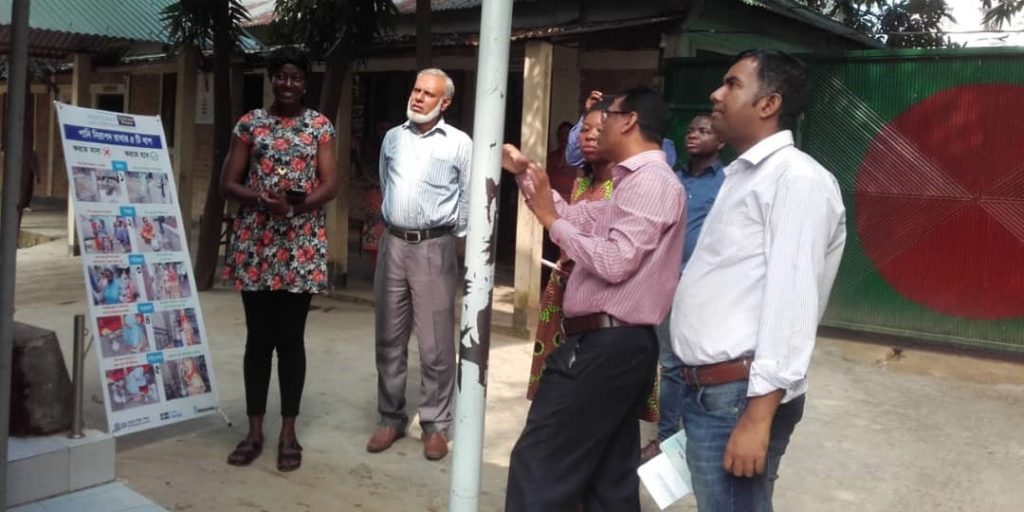
| In October 2019, a team of researchers from Lancaster and Ghana travelled to Bangladesh for a knowledge sharing visit to visit a successfully implemented series of Sanitation Safety Plan (SSP) and Water Safety Plan (WSP) activities completed in the Last 100 Meters project. A major aim of the visit was to learn the best practices implemented by the team in Bangladesh through field visits and a workshop. Two NGOs were involved in the training: Water Aid Bangladesh and DSK. The team also presented updates of the RECIRCULATE project at the Department of Architecture in BRAC University, Dhaka. The following is a blog from Bennett Akuffo reflecting on one aspect of the trip. |
It is documented that improved water, sanitation and hygiene (WASH) provision will significantly reduce morbidity and mortality resulting from diarrhoeal diseases. However, many school children do not have access to adequate WASH services, particularly in low income settlements. The consequences are enormous, absenteeism from school due to illness and reduced cognitive performance due to recurrent diarrhoeal disease episodes. School-based WASH systems could offer a solution. This blog discusses a model school-based WASH facility at the Vasantak School & College in Dhaka, Bangladesh.
Clean and safe drinking water
The facility comprises of a water filtration system, hygiene education, and sanitation complex that also houses a kit for female students’ menstrual needs. A local NGO, DSK in partnership with WaterAid Bangladesh and the school has made access to safe drinking water a reality and every child is happy to walk to the taps to have a drink. Water is life, clean water means good health and clean water means more time spent in school to study and graduate. Dirty water means more time spent at home with a tummy ache and less time at school.
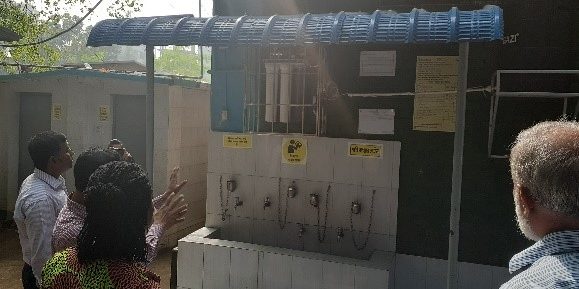
Drinking water taps
DSK’s vision and the willingness of the owners of the school to provide space is a recipe for success and mutual gain. DSK is happy and the school is filled with happy healthy kids. The school depends on a water supply which is not of the best of quality which is a common occurrence in Dhaka, but with a filter system installed to purify the water and dispensed in a clean drinking area, the school is more than happy to have a sip.
Access to clean toilet and sanitary kits for school students
The successful stories from Dhaka does not end with water for school kids only but providing needed toilets and sanitary pads disposal for schools also. WaterAid Bangladesh and DSK in partnership with Vasantak School Dhaka have provided the state-of-the-art toilet facilities to cater for the needs of the kids without compromising on quality. The school provided the land and walk way extension to make the project a reality. There are stand out features of these facilities that require praise. It is disabled friendly and has a sanitary pad disposal unit attached to it. It also has sanitary pad supply installed with a dedicated teacher ready to assist any student in need. Clean toilets with hand washing facilities attached enhances the overall health status of the school. Disability is no longer a hindrance to using the toilet.
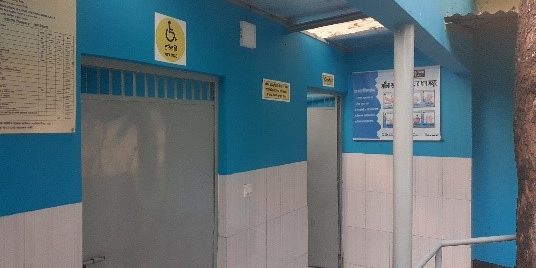
Accessible toilets
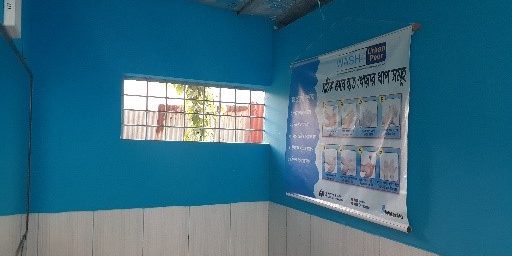
Hygiene education banner in school toilets
The programme manager for DSK explained: “Female students used to stay home for the duration of their menstrual period, but the installation of this facility has made it possible for them to attend classes even when they are menstruating”.
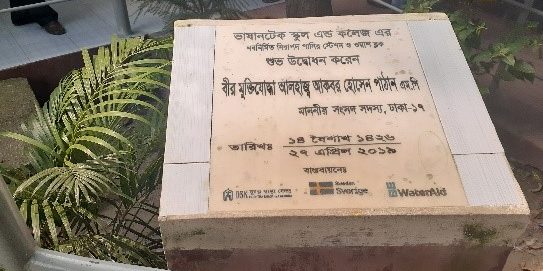
Sanitary pad disposal unit
This model school-based water and sanitation system demonstrates the potential of enhancing health and academic performance through targeted WASH programmes.
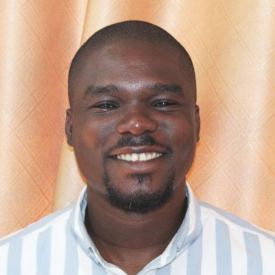 |
Bennett Akuffo is a Project Manager at Green Advocacy Ghana and leads their contribution WP2: Water for Sanitation. Bennett holds a BSc. in Environmental Management (NEBOSH), a Diploma in IMIS from NCR and a Certificate in Research Writing from AuthorAID and INASP USA. Bennett has experience in contaminated sites assessment under GAHP & over 10 years’ experience in E-waste management and its environmental and health effects in Ghana, with further training in WASH Audits by Lancaster University UK under RECIRCULATE Project. |
